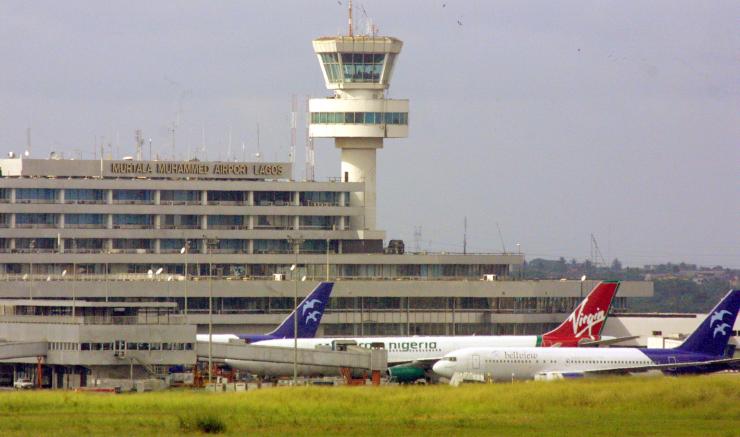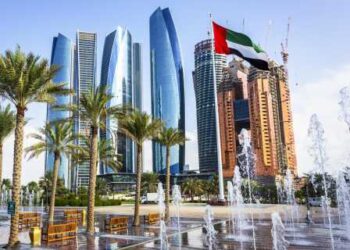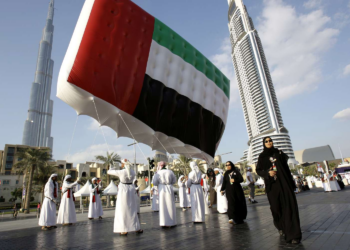One of the cardinal targets of the Federal Government in the past 20 years has been to make Nigeria the Aviation hub of Africa, but over the years, this dream has failed to become a reality.
Nigeria has natural endowments that fit the bill such as occupying a central location in Africa. While it takes a maximum of six hours to get to any country in Europe from Nigeria, it takes much longer hours to do so from East and Southern African countries.
While Nigeria is still struggling with the thought, Ghana, with a population of 32.5 million people is already taking the lead with the approval of attractive incentives to international airlines including a state-of-the-art aerodrome – Kotoka International Airport, which further creates more convenience to airline operators and therefore boost the sector’s contribution to the country’s GDP.
Foreign airlines are now more attracted to Accra, Ghana than Nigeria. Some Nigerian travellers also travel from Ghana to other parts of the world because of relatively cheaper airfares when compared to Nigeria.
Gradually, the human and cargo traffic is moving away from Nigeria to Ghana, yet Nigeria seems helpless.
Nairametrics in this report Proposes 10 ways by which Nigeria can become the aviation hub in Africa.
1. Get a National Carrier
Since the liquidation of the former national carrier, Nigeria Airways, in 2003, the Federal Government has struggled to bestow to the country another national carrier.
Many of the developed aviation industries in the world have a blossoming national carrier, which helps to facilitate tourism and boost movement into their countries. A national carrier will airlift passengers to its hub airport and distribute them to different cities around the world.
For instance, Emirates Airlines, the flag carrier of United Arab Emirates (UAE) airlifted 19 million passengers in 2021, while Dubai DXB International airport alone welcomed 29.1 million passengers within the period.
Meanwhile, within the same period, the entire 26 Nigerian airports welcomed only 16 million passengers.
The Managing Director of Finchglow Travels, Mr. Bankole Bernard, told Nairametrics that Nigeria needs a national carrier to make the country’s aviation industry a hub on the continent.
He said this would also further launder the image of the country in the comity of nations, while also boosting tourism.
2. Upgrade infrastructure
For Nigeria to become a hub in Africa, it needs to upgrade its obsolete infrastructure especially those at the international airports.
This would improve air passengers’ movement, accommodate more users, and create a more enabling environment for business organisations.
Because of this infrastructure shortfall, for instance, the largest passenger airliner in the world, Airbus A380 cannot operate in any of Nigeria’s airports, but it is already taking off and landing at Kotoka International Airport in Accra, Ghana.
Also, apart from the Murtala Muhammed International Airport (MMIA), Lagos, Port Harcourt International Airport (PHIA), Omagwa, Aminu Kano International Airport (AKIA), Kano, Nnamdi Azikiwe International Airport (NAIA), Abuja and Akanu Ibiam International Airport (AIIA), Enugu, the other 21 airports in Nigeria operate only sunrise to sunset.
Until the airport infrastructure is developed, Nigeria’s aviation industry can never be a hub.
3. Aircraft Leasing Company
One of the roadmaps of this government, when it came on board in 2015, was to facilitate setting up an aircraft leasing company in Nigeria.
A year after Sen. Hadi Sirika, the Minister of Aviation unveiled the plan in Lagos, the Federal Government partnered with Airbus, the largest aircraft manufacturing company in the world after Boeing Company, but six years after the partnership, the government is yet to walk the talk.
Once an aircraft leasing company is established in the country, airline operators would be able to lease aircraft at cheaper rates, create more job employment opportunities for technical personnel in the sector, boost the demands for the nation’s currency as airlines from outside the country would carry out business in Nigeria and reduce the pressure for foreign exchange.
4. Aircraft Maintenance Organisation
Maintenance, Repair, and Overhaul (MRO) facility is another critical aspect that can make the Nigerian aviation industry a hub on the continent. Today, Nigerian airlines take their aircraft to Turkey, Qatar, Brazil, Ethiopia, Kenya, South Africa, and numerous European nations for major maintenance like C and D- checks.
Like the aircraft leasing company, if the Federal Government had established an MRO in a country where this maintenance can be carried out, the pressure on the naira would reduce, while more airlines especially from the West and Central African regions would bring their aircraft to Nigeria for maintenance. As it stands today, there is no major MRO company in the region.
5. Forex availability
One of the setbacks entrepreneurs have suffered in Nigeria in recent years is the fluctuation of foreign exchange and its availability. In less than two years, the dollar has risen more than 100 percent to the naira.
Business entities in the Nigerian aviation industry are not immune from this challenge. Airline operators, ground handling companies, catering services, and other auxiliary organisations cannot access foreign exchange. Most of them patronise the black market to access the dollars at very exorbitant rates.
Also, most of the foreign airlines are yet to repatriate their funds out of the country for over nine months, despite assurances by the Federal Government.
This challenge is a huge disadvantage to the development of aviation in Nigeria and Foreign Direct Investments (FDIs) will continue to evade the country.
6. Abrogation of Multiple Charges
For a single air ticket, airlines pay as much as 35 multiple charges, which include the 5 percent Ticket Sales Charge (TSC), Passenger Sales Charge (PSC), aerodrome charges, navigational levies, landing and parking, the surcharge on aviation fuel and various other taxes and charges.
These multiple charges discourage investors and investments in the Nigerian aviation industry. Many foreign airlines claimed that the sector in Nigeria is one of the most expensive in the world, but the government has come out to debunk this claim.
However, in order to encourage business growth, some of these charges can be harmonised by the government for effectiveness.
7. Tax holidays
Aviation stakeholders in Nigeria have consistently craved tax holidays for investors in the country’s aviation industry. Some countries around the world provide tax holidays for companies that engage in the aviation sector.
This is done to attract them to the sector, increase the training of personnel and provide services to the public at more affordable rates.
8. Aviation Training School
Though the Nigerian College of Aviation Technology (NCAT), Zaria is a foremost aviation training school in Nigeria with the Federal Government’s support, the college is incapable of admitting all the students who have shown interest in attending the school to attain their professional goals. taking professions in the industry.
Many of such students enroll in aviation training schools in Ethiopia, UAE, South Africa, and others. If the government can focus its energy on establishing an aerospace university in Nigeria, the sector would record a boom and more foreign students would enroll in such schools in the country. This will also be a source of foreign exchange for the country.
9. Jet A1 Availability
The effect of the current energy crisis in the airline sub-sector in Nigeria cannot be over-emphasized. About two years ago, a litre of Jet A1 (aviation fuel) was less than N200, but today, the price has skyrocketed to over N800 per litre.
Apart from its high price in the local market, the product is also not available to willing buyers. Most of the potential clients refuel their tanks in the Benin Republic, Ghana, and Togo among others.
If the government can refine the product in Nigeria, and make it available to operators, the more foreign exchange would be earned by Nigeria, while the search for dollars would also reduce.
10. Airports as Aerotropolis
Airports today have grown beyond welcoming air travellers. Most governments around the world now develop their airports as cities. Aerotropolis involves the development of an airport-based city with air travel at its core surrounded by hotels, educational, entertainment, healthcare, and hospitality centres.
Some air travellers, especially tourists, travel to cities but stay within the airports for business activities before they return to their home countries.
Ironically, the Aerotropolis concept was one of the roadmaps of this administration in 2015, but over seven years later, no effort is made in this direction.
No doubt, Aerotropolis would give a boost to the aviation industry, increase its GDP and enhance business activities within and around the sector.


















